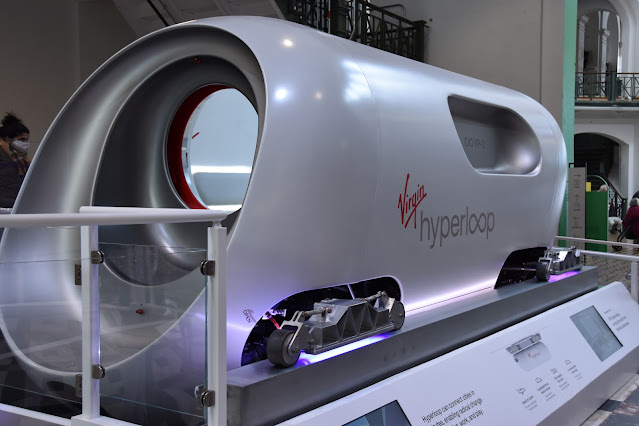A couple of Sundays ago, the CBS Sunday Morning Show (one of the most intelligent programs on American network television) did a feature on the Futures exhibit in the Arts and Industries building of the Smithsonian Institution in Washington DC. It was a cold Sunday, and I needed to get out for a walk, so I drove into the city and spent some time walking a couple of the Smithsonian museums. For those not familiar, the Smithsonian is not one museum, it is a bunch of them. Arts in Industries is one of the oldest buildings, and it had been closed for 19 years for structural repairs.
One of the items on display was a hyperloop car/capsule. The concept of a hyperloop is basically an enclosed tube, kind of like a pneumatic tube, transport pods would move inside of the tube at very high speeds, just under the speed of sound. The working model, uses linear induction electric motors, that have no moving parts, and magnetic levitation to minimize ground contact and friction. The enclosed tube minimizes friction, and actually the air can be pumped in the direction of travel creating even less drag. The current test circuits are relatively small. Large scale they are talking about Washington DC, to New York City in 25 minutes, a trip that currently take 2 1/2 to 3 1/2 hours by train, or 45 minute by air, but when you land in New York, you are an hour from the city center where most people want to be.
The current test vehicles seats two people. In relative comfort, but the trips would be short, the east coast corridor in less than an hour, east coast to Chicago in about an hour (with the time zone change you would arrive in Chicago from the east coast, before you left.) Cross country in about three hours.
Will it work? It works. Is it practical, time will tell. It is less than 100 years since humans first flew across the Atlantic, and there were those that questioned if air travel would ever be practical. I marvel to think of the travel adventures of the next 100 years.


Comments
Post a Comment